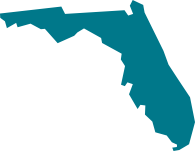Integrated Viral Hepatitis Surveillance and Prevention Funding for Health Departments (IVHSP): Special Projects for PWID (Component 3)
CDC-RFA-PS21-2103
Public Health Consequences of Injection Drug Use
People who inject drugs (PWID) are at high risk for viral hepatitis, HIV, and bacterial or fungal infections, which require costly and prolonged medical care. Sharing of syringes and other equipment used to prepare and inject drugs has led to new cases of hepatitis A, hepatitis B, and hepatitis C reported each year in the United States. Rates of endocarditis, a bacterial or fungal infection of the heart, have more than doubled since 2010, and HIV outbreaks among PWID are now occurring with increased frequency. People with a substance use disorder are often not provided medication for opioid use disorder or comprehensive care to address multiple co-occurring medical and psychiatric conditions when they are seen in community settings or hospital-based systems. People who use or inject drugs (PWUD/PWID) more often seek out care in syringe services programs, hospital settings, and other community health settings that have built trust within their communities. However, these settings vary in their ability to provide access to comprehensive preventive and treatment services, such as medication for opioid use disorder, as well as prevention, testing, and treatment for infectious diseases.
CDC Activity to Improve the Health of PWID
Under Component 3: Special Projects for PWID of Integrated Viral Hepatitis Surveillance and Prevention Funding for Health Departments (CDC-RFA-PS21-2103), CDC funds 17 jurisdictions (13 states and four cities/counties) to complete special projects addressing infectious diseases transmitted through injection drug use. Funding for these projects covers activities that specifically improve access to services for people who inject drugs in settings disproportionately affected by drug use (Goal 3.1). To accomplish this goal, these 17 projects are developing and implementing a ‘PWID service bundle’ in settings that serve PWID. A ‘PWID service bundle’ is a list of services designed to prevent, reduce, or treat infectious disease complications of injection drug use. Local jurisdictions can prioritize which services are most important for their populations. PWID service bundles include access, directly or through referral, to:
- Testing for hepatitis C virus (HCV), hepatitis B virus (HBV), and human immunodeficiency virus (HIV)
- Treatment for infectious diseases (viral, bacterial, and fungal)
- Vaccination for hepatitis A and hepatitis B and HIV pre-exposure prophylaxis (PrEP)
- Sterile injection equipment or supplies sufficient for all injections
- Assessment for opioid use disorder (OUD) and medication for opioid use disorder (MOUD) for those with known OUD
- Naloxone training and distribution
Recipients draw on a variety of partnerships and settings (harm reduction sites; community clinics and jail or other criminal justice health facilities; public health clinics; and health care clinics) to ensure PWID in their jurisdictions receive these bundled services.
Funded Jurisdictions for Special Projects for PWID

Awardee Name: Baltimore City Health Department (BCHD)
Bundled service delivery settings: hospitals and/or clinics, syringe services programs (SSPs)
Summary of Project: Baltimore’s ‘The Spot’ mobile clinic serves persons who use or inject drugs (PWUD/PWID) by offering integrated mobile testing and clinical services co-located with SSPs. BCHD’s project focuses on continuing or exploring the following services and activities:
- buprenorphine treatment for opioid use disorder (OUD)
- coordination with SSPs to ensure syringe services when appropriate
- naloxone training and distribution
- testing and treatment for HIV, hepatitis C, and STIs
- PrEP for HIV prevention
- testing and referral for hepatitis B treatment
- immunization for hepatitis A and hepatitis B
- wound care
- case management services
- integration of ‘The Spot’ and SSP services, informed by starting an advisory committee of people with lived experience
- potential establishment of additional service locations
- engagement of other partner organizations or groups serving PWUD/PWID
Implementing these activities will contribute to improved health outcomes for PWID by:
- Increasing access to high-coverage needle-syringe exchange among PWID
- Increasing linkage to substance use disorder (SUD) treatment (including medication for opioid use disorder (MOUD) among PWID with OUD)
- Increasing hepatitis C virus (HCV), human immunodeficiency virus (HIV), and hepatitis B virus (HBV) testing among PWID
- Increasing linkage to treatment services among people with infectious disease complications (viral hepatitis, HIV, bacterial, fungal) of SUD
- Increasing hepatitis B and hepatitis A vaccination among PWID

Awardee Name: Colorado Department of Public Health and Environment
Bundled service delivery settings: syringe services programs (SSPs), substance use disorder (SUD) treatment programs, hospitals and/or clinics, correctional settings
Summary of Project: Colorado Department of Public Health and Environment (CDPHE) is implementing a community-specific, multi-agency and data-driven approach to focus its efforts to serve people who inject drugs (PWID) in three highly impacted regions. Over the next five years, CDPHE is:
- enhancing existing SSPs and support the establishment of new SSPs
- developing a Regional Provider Network to cultivate relationships with PWID providers and key stakeholders
- updating PWID data collection instruments to promote a data to action model
These activities will contribute to improved health outcomes for PWID by:
- increasing access to culturally responsive care and high-coverage, needle-syringe exchange
- decreasing injection-drug-use-associated infections and overdoses
- increasing linkage to SUD treatment (including medication for opioid use disorder among PWID with opioid use disorder)
- improving testing and linkage to treatment for infections associated with drug use and SUD (including hepatitis C virus, human immunodeficiency virus, hepatitis B virus, and bacterial and fungal infections)
- increasing vaccination for hepatitis A and hepatitis B

Awardee Name: Florida Department of Health
Bundled service delivery settings: academic institutions, syringe services programs (SSPs), hospitals and/or clinics, federally qualified health centers, community organizations
Summary of Project: To make progress toward the elimination of viral hepatitis in Florida, the Department’s Viral Hepatitis and Outbreak Response Program, key partners, and stakeholders are:
- making vaccination for hepatitis A and hepatitis B widely available for high-risk populations
- making testing for hepatitis B and hepatitis C routinely available in high-volume settings
- disseminating prevention education to appropriate populations
- developing a service delivery model with peer navigators to help SSP participants access infectious disease screening, vaccines, linkage to treatment, and medication for opioid use disorder (MOUD) for people who inject drugs (PWID)
- engaging persons with lived experience and other community stakeholders in the development of service delivery models and viral hepatitis elimination planning
- implementing sustainable and replicable evidence-based interventions in clinical and non-clinical settings
By implementing these activities, the Viral Hepatitis and Outbreak Response Program will contribute to improved health outcomes for people who inject drugs (PWID) by:
- increasing provider capacity to provide screenings for hepatitis C, hepatitis B, human immunodeficiency virus (HIV), and other infectious diseases of concern among PWID
- increasing provider capacity to make treatment for hepatitis B and hepatitis C readily accessible
- improving and increasing access to bundled services and education for PWID
- reducing incidence of hepatitis and other infectious diseases and health issues related to substance use disorder

Awardee Name: Indiana State Department of Health
Bundled service delivery settings: local health departments, hospitals and/or clinics, syringe services programs (SSPs), laboratories, pharmacies, community organization
Summary of Project: Indiana’s project has two major components: 1) establishing Connections Clinic (in the greater Indianapolis area) and, 2) initiating a request for funding proposal process, in partnership with The Health Foundation of Greater Indianapolis, to identify and fund novel and innovative approaches to engage people who inject drugs (PWID) in SSPs. Together, these initiatives are:
- providing PWID with non-judgmental, accessible health care by bringing harm reduction, infectious disease, primary care, and substance use disorder treatment services to one location
- providing walk-in services and treatment plans tailored to each client’s needs
- potentially expanding locations or operating hours
- exploring the option of including additional services such as prenatal care, podiatry, and standing orders for antibiotic therapy
- developing a service delivery model by training staff to integrate harm reduction services into clinical care
- awarding grants, non-syringe harm reduction supplies, and technical support to local health departments, community-based organizations, and stakeholders to implement and evaluate accepted proposals
Implementing these activities will contribute to improved outcomes for PWID by:
- expanding integration of PWID-service bundles in other settings
- improving access to harm reduction services in settings disproportionately affected by drug use
- increasing linkage to substance use disorder treatment (including medication for opioid use disorder)
- increasing hepatitis C virus, hepatitis B virus, and human immunodeficiency virus testing

Awardee Name: Iowa Department of Public Health
Bundled service delivery settings: pharmacies, community health centers, correctional settings, hospitals and/or clinics, homeless outreach organizations, other harm reduction programs
Summary of Project: Over the 5-year project period, Iowa Department of Public Health is developing a coordinated system of care by:
- leveraging existing stakeholder groups to advise on the development of a service delivery model and viral hepatitis elimination plan
- reviewing available assessment, survey, and epidemiological data to identify information gaps
- partnering with the Iowa Pharmacy Association to assess and improve pharmacy syringe and naloxone access
Developing and implementing this system will contribute to improved health outcomes for people who inject drugs by:
- improving access to harm reduction tools
- increasing human immunodeficiency virus (HIV), hepatitis C virus (HCV), and hepatitis B virus testing
- increasing linkage to medical services (including substance use disorder treatment, vaccination, and HCV treatment)

Awardee Name: Kentucky Department for Public Health
Partner types: local health departments, syringe services programs (SSPs), academic institutions, HIV programs, behavioral health programs, substance use disorder (SUD) treatment programs, correctional settings, other harm reduction programs
Summary of Project: Kentucky Department for Public Health is coordinating with local health departments, SSPs, and the Kentucky Income Reinvestment Program to:
- develop and pilot a service delivery model in a high-impact setting for people who inject drugs (PWID)
- incentivize completion of all steps of the hepatitis C clearance cascade for PWID to increase the number of PWID screened, linked to care, treated, and provided access to comprehensive services
- eventually assess linkage to hepatitis C virus (HCV), human immunodeficiency virus (HIV), and SUD treatment among PWID
Implementing these activities will contribute to improved health outcomes for PWID by:
- supporting access to sterile needles and syringes
- increasing hepatitis A and hepatitis B vaccination
- improving testing for HIV, hepatitis B virus (HBV), and HCV
- increasing the number of PWID who know their HCV status and are successfully treated and cured

Awardee Name: Los Angeles County Department of Health
Bundled service delivery settings: syringe services programs (SSPs), correctional settings
Summary of Project: Los Angeles’ Substance Abuse Prevention and Control (SAPC) Program supports six SSPs and leads the county’s effort to serve people who inject drugs (PWID). Los Angeles County’s project is:
- developing local SSPs into Engagement & Overdose Prevention sites that offer a range of harm reduction services targeting substance use disorder (SUD), mental, physical, sexual, and reproductive health
- partnering with established SSPs to provide vaccination services and improve linkage to viral hepatitis care
- supporting SSP(s) by providing a medical case worker
- improving linkage from Los Angeles County jail facilities to community health care services
- developing and sharing educational materials and best practices
Implementing these activities will contribute to improved health outcomes for PWID by:
- increasing access to high-coverage needle-syringe exchange
- increasing linkage to SUD treatment (including medication for opioid use disorder among PWID with opioid use disorder)
- increasing hepatitis B virus, hepatitis C virus, and human immunodeficiency virus (HIV) testing
- increasing linkage to treatment services among people with infectious disease complications (viral hepatitis, HIV, bacterial, fungal) of SUD
- increasing hepatitis B and hepatitis A vaccination
- increasing dissemination of evidence-based interventions and guidance to reduce bacterial and fungal complications

Awardee Name: Maine Department of Health and Human Services
Bundled service delivery settings: syringe services programs (SSPs), substance use disorder (SUD) treatment programs, hospitals and/or clinics, correctional settings
Summary of Project: Maine Center for Disease Control and Prevention is creating statewide partnerships to:
- develop and deliver a service bundle in high-impact settings for people who inject drugs (PWID)
- perform a needs assessment and collect baseline data
- build capacity to improve data-driven program management
These strategies will contribute to improved health outcomes for PWID by:
- increasing access to high-coverage, needle-syringe exchange
- improving testing for human immunodeficiency virus, hepatitis B virus, and hepatitis C virus (HCV)
- increasing linkage to medical services (including SUD treatment, vaccination, and HCV treatment)

Awardee Name: Massachusetts Department of Public Health
Bundled service delivery settings: syringe services programs (SSPs), hospitals and/or clinics
Summary of Project: To reduce hepatitis C virus-related morbidity and mortality by the end of the project period, Massachusetts is:
- building capacity to improve data-driven program management
- implementing training and education programs for frontline staff and clinicians
- improving organizational effectiveness through capacity-building, informed by consultative assessment and stakeholder feedback
These strategies will contribute to improved health outcomes for people who inject drugs by:
- expanding access to prevention and vaccination services
- improving testing and linkage to treatment for infections associated with drug use and substance use disorder (SUD)
- increasing linkage to SUD treatment

Awardee Name: New Mexico Department of Health (NMDOH)
Bundled service delivery settings: syringe services programs (SSPs), community health centers, hospitals and/or clinics, substance use disorder (SUD) treatment programs
Summary of Project: NMDOH’s Hepatitis and Harm Reduction Program (HHRP) oversees one of the longest-running, most comprehensive, and highest volume harm reduction programs in the nation. The program has a broad reach in all five public health regions of the state, currently operating 53 sites (mobile, fixed, and clinic-based) that serve 15,000 clients per year. This network of comprehensive harm reduction program sites ensures access to a significant proportion of all people who inject drugs (PWID) in the state. During the project period, the HHRP is awarding contracts to three provider settings to:
- identify two new integrated harm reduction program sites per project year
- provide the full range of services to PWID, including needle-syringe exchange, overdose prevention, hepatitis A and hepatitis B vaccination, hepatitis C virus (HCV) testing, and linkage to HCV treatment
- provide HCV RNA testing resources and training to site staff to allow on-site phlebotomy at clinic-based, community-based, and mobile harm reduction sites
- train program sites on patient navigation to reduce barriers to care, including linkage to organizations that offer health insurance enrollment in plans covering HCV treatment and medication for opioid use disorder
- expand relationships with SUD treatment providers to expedite referrals for participants and improve access to services
These strategies will contribute to improved health outcomes for PWID by:
- increasing access to high-coverage needle-syringe exchange
- increasing linkage to SUD treatment
- improving testing and linkage to treatment for infections associated with drug use and SUD (including HCV, human immunodeficiency virus, hepatitis B virus, bacterial, and fungal infections)
- expanding vaccination for hepatitis A and hepatitis B

Awardee Name: New York City Department of Health and Mental Hygiene
Bundled service delivery settings: syringe services programs (SSPs), substance use disorder (SUD) treatment centers, telemedicine programs, primary care settings, medication for opioid use disorder (MOUD) treatment centers, hospitals and/or clinics
Summary of Project:
New York City’s Viral Hepatitis Program is providing contracted SUD treatment programs with training, tools and technical assistance to build their capacity to:
- implement quality improvement and data collection projects for better identification and screening of people who inject drugs (PWID) for infectious disease complications (hepatitis B virus [HBV], hepatitis C virus [HCV], human immunodeficiency virus [HIV], bacterial or fungal infections)
- treat PWID on-site, by referral, and via telemedicine
- collect complete HBV, HCV, and HIV testing and linkage to care data to identify gaps and form referral and linkage systems with organizations that provide integrated prevention and treatment services for PWID
- collect comprehensive vaccination data to identify gaps and promote complete hepatitis A and hepatitis B vaccination
- identify successful practices for potential expansion city-wide and to additional settings and organizations serving PWID
These interventions will contribute to improved health outcomes for PWID by:
- improving access to health services like needle-syringe exchange programs and SUD, MOUD, and HCV treatment
- increasing hepatitis A and hepatitis B vaccination
- improving data collection on HBV, HCV, and HIV testing
- increasing HBV, HCV, and HIV linkage to care for both in-person visits and telemedicine

Awardee Name: Oregon Health Authority Public Health Division
Bundled service delivery settings: community organizations, peer recovery support programs, syringe services programs (SSPs), substance use disorder treatment programs, medication for opioid use disorder treatment centers, hospitals and/or clinics, community health centers, tribal health centers, academic institutions, primary care settings, correctional settings, settings providing other support services
Summary of Project: The Oregon Health Authority (OHA) is convening a multi-agency collaboration with community-based organizations, key community stakeholders and people with lived experience of substance use in Umatilla County to coordinate and implement a comprehensive package of services needed by people who use and inject drugs. OHA is focusing on:
- developing a coordinated service model
- putting into place shared data agreements and aligned workplans
- starting integrated services
- initiating the collection, reporting, and sharing of cross-agency data that will improve service delivery
- sharing lessons learned
- continuing to support social norm changes that increase the engagement of people into services
The multi-agency collaboration and interventions will contribute to improved social and health outcomes for people who inject drugs by:
- increasing the sustainability of the systems change efforts
- increasing access to preventive, diagnostic and treatment services, so people using or injecting drugs can take positive steps towards health and healing

Awardee Name: Philadelphia Department of Public Health (PDPH)
Bundled service delivery settings: syringe services programs (SSPs), substance use disorder (SUD) treatment centers, community health centers
Summary of Project: PDPH’s ‘Philly in Sync’ project is applying system-level changes and patient-level supports in two partner sites – an SSP and SUD provider – to scale up integration of testing, linkage to care, treatment, and vaccination for infectious diseases associated with drug use. The partner sites are receiving hands-on support and technical assistance (TA) from PDPH programs and from a TA organization focused on hepatitis C virus (HCV) and other infectious diseases. In addition, PDPH is convening a Technical Advisory Committee (TAC) with key internal teams and external providers on harm reduction and behavioral health integration with hepatitis B virus (HBV), HCV, human immunodeficiency virus (HIV), and other infections among people who inject drugs (PWID) with key internal and external partners. PDPH is also:
- developing a Provider Toolkit, informed by the experiences of TAC members and partner sites, to help integrate care for these conditions in partner settings serving PWID throughout Philadelphia
- supporting additional partner sites serving PWID to expand integration of services and the PWID service bundle by initiating a request for funding proposal process for future project years
These activities will contribute to improved health outcomes for PWID by:
- promoting collaboration between partner programming across Philadelphia
- improving harm reduction, syringe access, and SUD treatment referral citywide
- utilizing health system-level changes to improve testing, linkage to care, treatment, and vaccination for clients

Awardee Name: Rhode Island Department of Health
Bundled service delivery settings: syringe services programs (SSPs), behavioral health programs, substance use disorder (SUD) treatment centers, correctional settings
Summary of Project: Rhode Island Hepatitis Prevention Program is developing and implementing a comprehensive, multi-level, outcome-focused approach to:
- preventing infectious disease associated with injection drug use
- meeting the needs of people where they are
- reducing overdose death
- linking people to substance use treatment
- improving access to preventive, diagnostic, and treatment services for people who inject drugs (PWID)
These interventions will contribute to improved social and health outcomes for PWID by:
- achieving full coverage of the populations most at risk
- increasing access to services at the local and state level

Awardee Name: Utah Department of Health
Bundled service delivery settings: community organizations, syringe services programs (SSPs), homeless outreach organizations, substance use disorder (SUD) treatment centers, hospitals and/or clinics
Summary of Project: The Utah Department of Health’s Viral Hepatitis Team is establishing collaborative relationships with partner organizations that serve people who use and inject drugs (PWUD/PWID) in Utah to identify and implement enhanced viral hepatitis and harm reduction services. By providing ongoing implementation support, the Team is helping to increase access to services for PWUD/PWID, including:
- harm reduction and syringe services
- hepatitis C virus (HCV) screening and confirmation testing
- linkage to HCV treatment
Implementation of these project activities will also contribute to improved social and health outcomes for PWID by:
- evaluating effective services and interventions for PWID populations that will allow the Team to implement improvements as needed
- expanding public health programs
- preventing new viral hepatitis and HIV infections
- increasing hepatitis C testing and treatment among PWUD/PWID

Awardee Name: Washington State Department of Health
Bundled service delivery settings: syringe services programs (SSPs), medication for opioid use disorder (MOUD) treatment centers, local health departments, community organizations
Summary of Project: Washington State has two co-located SSP/MOUD treatment programs in Seattle that provide a variety of complimentary services, including hepatitis B virus/hepatitis C virus (HCV)/human immunodeficiency virus testing and hepatitis A and hepatitis B vaccination. This project is:
- expanding on-site HCV treatment prescription and low-barrier MOUD treatment
- facilitating access to viral hepatitis clinical care through care coordination and linkage staff with extensive experience working with people who use drugs
- supporting engagement and communication with partners and stakeholders to create services and mobilize harm reduction resources in King County
Implementation of these project activities will contribute to improved social and health outcomes for people who inject drugs by:
- increasing access to HCV treatment
- reducing harm related to drug use

Awardee Name: West Virginia Department of Health and Human Resources
Bundled service delivery settings: local health departments, community organizations, academic institutions, syringe services programs (SSPs), substance use disorder (SUD) treatment centers, other harm reduction programs
Summary of Project: West Virginia has 9 licensed harm reduction programs (HRPs) providing high coverage needle-syringe exchange for people who inject drugs (PWID). The state’s Vulnerable Populations Program Manager is working with partners to:
- perform a needs assessment and collect baseline data from HRPs, Department of Corrections (DOC), and the state’s Office of Laboratory Science (OLS)
- work with DOC to change HCV testing from opt-in to opt-out for all state jails and prisons
- increase funding to the state lab (OLS) to expand hepatitis C virus (HCV) reflex testing for all currently serviced jails, prisons, and HRPs
- work in partnership with West Virginia Hepatitis Academic Mentoring Partnership (WVHAMP) to increase statewide coverage of provider capacity for HCV treatment
- create and distribute educational brochures to every individual leaving jail or prison that highlight the locations of all HRPs, the website where they can get live updated information on all licensed HRPs, where to get tested for HIV and HCV, doctors who treat chronic HCV, and harm reduction best practices for injection drug use
- provide technical assistance and support to potential new HRPs to understand the new state licensing process and requirements
- provide tools for HRPs to collect viral hepatitis vaccination and linkage to care data
These interventions will contribute to improved health outcomes for PWID by:
- increasing linkage to care
- improving treatment for HCV
- updating and improving situational knowledge of highest need health services and resources